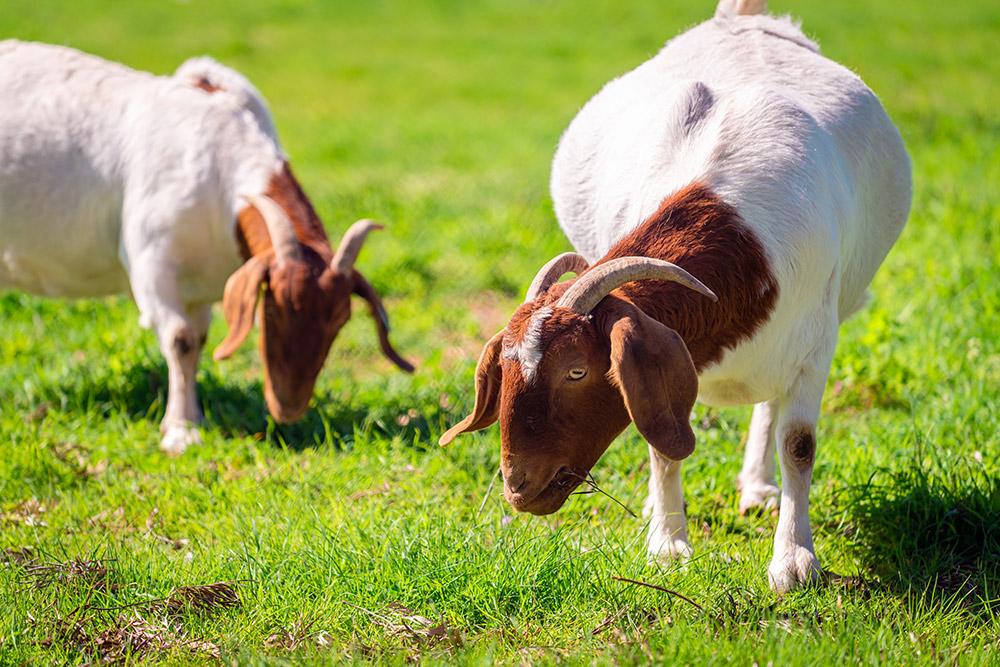Common goat diseases
Find tips on how to ensure your goats are healthy and disease-free.
Bladder stones and urethral blockages
There are a variety of bladder stones that can form in goats; the majority of the time these stones form under specific conditions when certain minerals are present in very high concentrations in the urine. The best way to prevent this is to feed a high forage diet (limit the access to concentrates and lucerne in the feed) and provide constant access to water to dilute the urine.
Male goats, especially those castrated early (prior to 4–5 months of age) are more susceptible and delaying castration can aid in preventing blockages from these stones.
What to feed your goat
One of the biggest contributors to bladder stones in goats is poor nutrition. Goats are browsers and they're designed to forage among sparse and woody vegetation.
Only feed your goat:
- grassy hay (avoid lucerne, grain or horse feed)
- carrots, green beans, cucumber or cabbage as an occasional treat.
A diet supplemented with mineral-rich lucerne or grain can cause stones to form gradually from a build-up of excess minerals.
The stones travel from the bladder to the urethra and eventually block the passage of urine. You may notice your goat straining to urinate, urinating frequently, or dribbling small amounts of urine.
Bladder stones are extremely painful and can be life threatening.
How to prevent bladder stones
Treatment for bladder stones requires surgery which is expensive and not always successful.
To minimise the risk of bladder stones:
- castrate after 3 months of age
- provide access to plenty of fresh clean water
- make a salt lick available to encourage frequent water drinking.
Anaemia (low red blood cells)
There are many causes of anaemia in goats. These include mineral deficiencies such as iron, copper or cobalt, and parasite infestations (e.g. barbers pole worm).
The FAMACHA scoring system can be used to identify animals with anaemia, the most common cause of which will be intestinal worms.
Animals which have a low FAMACHA score likely require veterinary attention, especially if lethargic or inappetant.
Ruminal acidosis
Acidosis occurs when goats consume high-carbohydrate foods at levels that they are not accustomed to. These carbohydrates feed bacteria in the rumen (first stomach), which utilise them to produce acidic substances. The subsequent acidic environment within the rumen is lethal to other microbes, resulting in their death and a ‘dysbiosis’ within the rumen.
The acidic compounds are also typically absorbed into the bloodstream, resulting in systemic illness and, at-times, fatalities. These animals are typically lethargic, inappetence, with a swollen abdomen.

